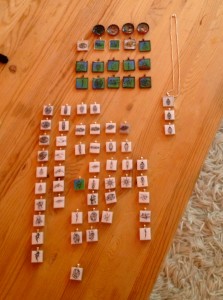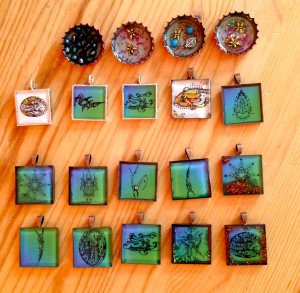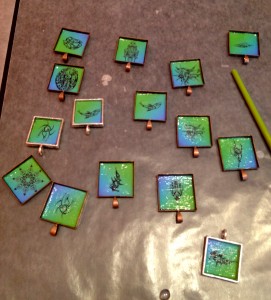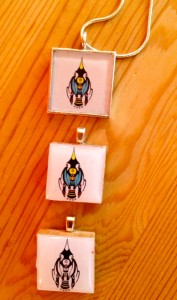
An Instructive Listing of the Major Gardens of Tabat, being Pamphlet #4 of the second series of “A Visitor’s Guide to Tabat,” Spinner Press, author unknown.
Despite the city’s fierce weather, the cliffs that shelter it on the northwest and western side create pockets of weather that allow its gardeners to coax fruit and flower that normally would not be found here. Additionally, the presence of the College of Mages ensures a perennial crop of young mages ready to earn their coin by turning it to a patron’s use, creating marvels like a moonlight garden whose flowers change aspect according to the positions of the three moons in the sky, as is rumored to be located in the center of the Moon Temples’ complex, unknown to any but their priests.
Accordingly those interested in the botanic, the scenic, or the complete experience of Tabat should allot time in their schedule for the following.
The Duke’s Gardens: Appended to the Ducal castle, the grounds are open to the public on even-numbered days and feast days but are always closed during the Games. Often select Beasts and animals from the Ducal menagerie are brought out for display. Cost is a silver ship per adult visitor, with children at five per ship. Hours are dawn till the seventh evening bell.
Tabat’s Heart: These vast gardens stretch through the middle of Tabat, cutting across all but the top and bottom terraces. Tram lines and staircases line the western edge, allowing access to the paths across as well as the many sub-gardens and fountains. Admission is free and the parks are always open, but are patrolled by mechanicals after midnight until the first morning bell.
The Sea Garden: Built into the western cliffs at the water’s edge is the Sea Garden, full of corals and in the summer tanks of sea creatures and Beasts, including singing Whales and Dolphins, and a display of venomous sea serpents. Admission is free in the winter and a copper ship throughout the rest of the year, with a discount for schools and educational groups. Hours are from the last night bell through the first evening bell. Open all days except Games.
The Gardens at the College of Mages: Filled with plants, animals, and Beasts collected from across the world, these gardens are renowned in scholarly and academic circles. Points of interest include the Fairy hive in their central hall, which also acts as museum, the caged Mandrakes, their Sphinx amid its xeric landscape, and the Hypnotic Garden, which features narcotic and soporific plants and animals and which can only be entered with a guide, who wears a white silk mask and is prepared to wake the visitor if he or she succumbs. Admission is a silver merchant for two, and includes chal in the Dancing Cup across the way from the College’s grounds.
Famous for their aromatic and ornamental plantings, the grounds of the Nettlepurse estate are open every Fifteenth Day. Cost is a Nettlepurse nought. Hours are the third morning bell through the midnight bell. Go in the spring in the evening to see the humming moths that are an all too brief yearly phenomenon or visit the Cypress Maze in order to view the reflecting pool in its center.
If you have additional time, we recommend the flowering tree groves of the Piskie Wood (to be visited only in the daylight hours, and wear bright clothing to avoid the Piskie hunters who practice their livelihood there.)
Love the world of Tabat and want to spend longer in it? Check out Hearts of Tabat, the latest Tabat novel! Or get sneak peeks, behind the scenes looks, snippets of work in progres, and more via Cat’s Patreon.
- Hearts of Tabat on Amazon
- Hearts of Tabat on Baen Books
- Hearts of Tabat on B&N
- Hearts of Tabat on Kobo
- Hearts of Tabat on Powell’s
- Hearts of Tabat on Smashwords
#sfwapro








One Response
Cat Rambo: Documents of Tabat: Gardens of Tabat http://t.co/KhkGQqG75G